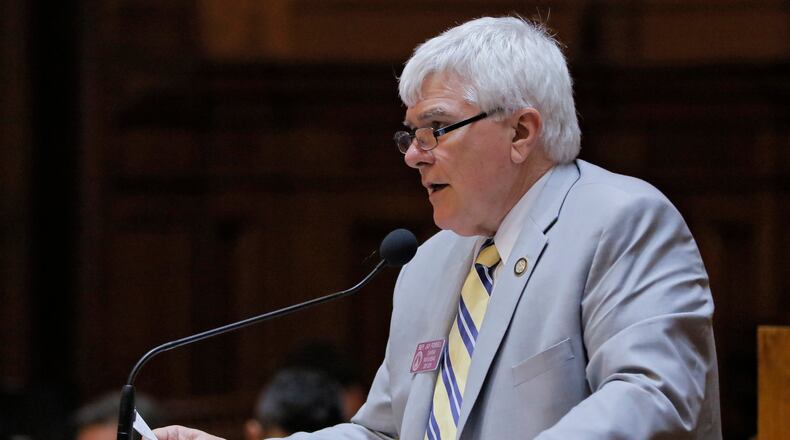The Georgia Senate backed cutting the top state income tax rate 10 percent last year, but the chamber’s leaders balked this year when the House proposed a similar reduction.
The reason: Senate leaders said the House proposal, which would cut the top rate from 6 percent to 5.4 percent and charge everybody the same, would wind up increasing taxes for a lot of poor and middle-income Georgians.
That’s because it does away with the current graduated tax rates - 1 percent rising to 6 percent as income grows - and eliminates a provision in state law that allows Georgians who itemize their deductions when they fill out their tax returns to write off their state income tax payments.
According to a Georgia State University analysis, single Georgians who itemize deductions on their tax forms, earning up to about $60,000 a year, and families up to $90,000 would see a slight tax increase under the major provisions of House Bill 329.
The analysis did not include a earned-income tax credit House members included in the bill, which would cut the tax tab for some low-income families.
However, the analysis by Robert Buschman of the Fiscal Research Center at GSU suggested that cutting the top rate 10 percent and making it a flat rate for everyone is largely a tax break for families earning more than $90.000, with the benefit going up substantially for those earning more than $200,000 a year.
The Senate version would keep the graduated tax system but lower the top rate to 5.65 percent. It would also increase the personal exemption by $300 per person.
Senate Finance Chairman Chuck Hufstetler, R-Rome, said the Senate plan would prevent any Georgians from seeing a tax increase. However, almost all the benefit would still go to upper-middle and particularly upper-income Georgians.
Hufstetler said the Senate plan being considered Tuesday would save those taxpayers - and cost state coffers - about $200 million. That’s a greater cut than in the House proposal, largely because more Georgians’ taxes would either go up or remain about the same.
A state analysis obtained by the Atlanta Journal-Constitution shows that under the Senate plan, the income tax provisions would save select taxpayers - and cost state coffers - $292 million in 2019, and that would rise to $526 million by 2022.
The House may feel a little whiplash from the Senate on the issue. The chamber's previous Senate Finance Chairman, Judson Hill, now a candidate for Congress, was long the General Assembly's champion for a major income tax rate like the one the House is proposing.
If the bill gets approved in the Senate Tuesday - as expected - House and Senate leaders will try to hash out their differences in the proposals before the session ends Thursday. It’s unclear if they’ll be able to come to an agreement.
It is also not clear that Gov. Nathan Deal would sign either proposal. Governors generally don't like messing with the state's bread-and-butter revenue sources too much, and most state revenue comes from state income and sales taxes. A $526 million hit to state coffers in a few years may be too big for Deal. His predecessor, Gov. Sonny Perdue, vetoed two late-session tax breaks developed by Republicans in his final term.
About the Author
Keep Reading
The Latest
Featured




